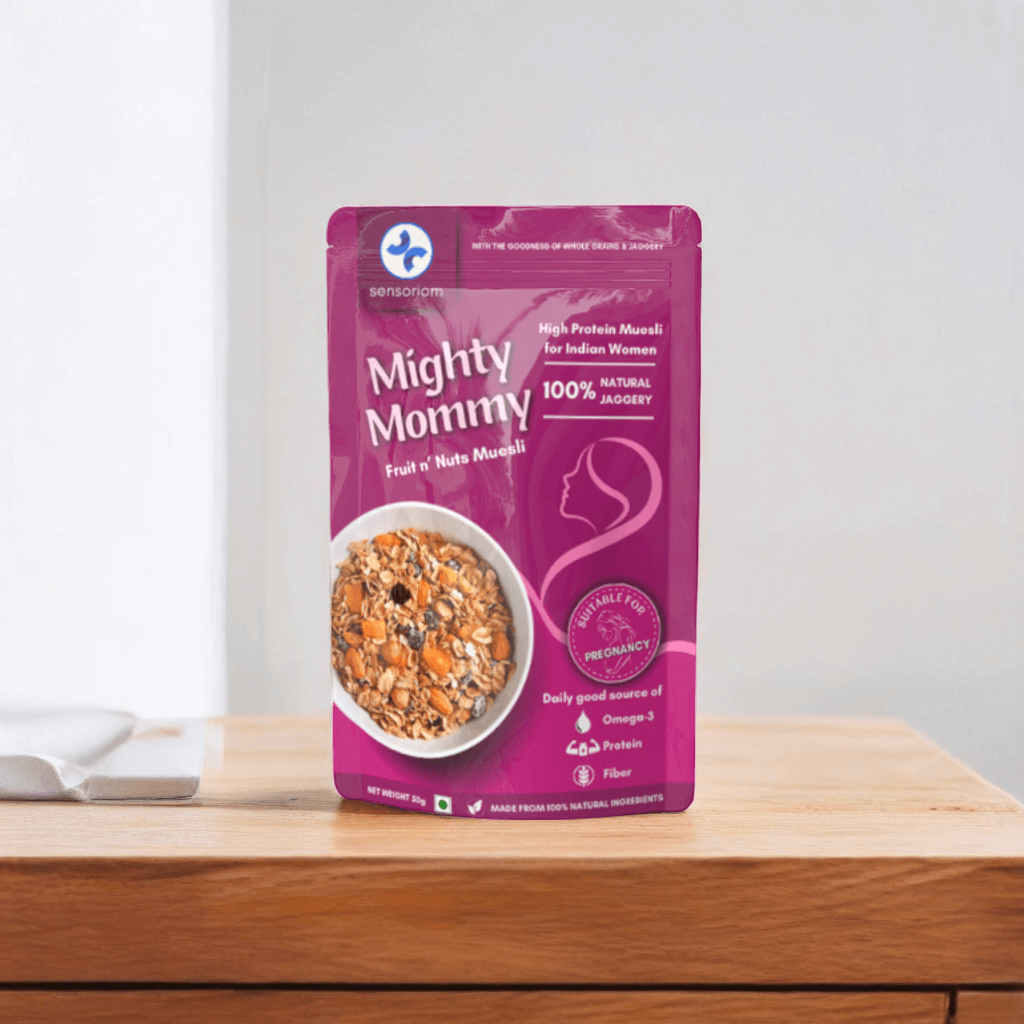The Complete Pregnancy Diet Chart for Indian Women

Pregnancy is one of the most transformative journeys a woman experiences—emotionally, physically, and nutritionally. A balanced, trimester-wise diet isn’t just essential for the baby’s development but also for the mother’s well-being.
In India, where regional diets are rich in tradition and diversity, creating the right pregnancy diet means aligning modern nutritional science with local eating habits.
This guide offers a comprehensive Pregnancy Diet Chart for Indian Women, especially tailored to North Indian and South Asian dietary patterns, with trimester-wise recommendations, must-have nutrients, and practical tips.
Want a FREE PDF copy of Pregnancy Diet Chart for Indian Women . Click here to order.
Why Is Pregnancy Nutrition So Important?
Pregnancy increases the body’s nutritional demands—not just for calories, but more importantly for micronutrients like iron, folic acid, calcium, vitamin D, and protein. Poor maternal nutrition can lead to:
Low birth weight
Preterm labor
Anemia and gestational diabetes
Poor postnatal recovery
A well-balanced Indian pregnancy diet includes seasonal vegetables, whole grains, pulses, dairy, nuts, and fruits, adjusted by trimester.
Key Nutrients Needed During Pregnancy
| Nutrient | Function | Best Indian Sources |
|---|---|---|
| Folic Acid | Prevents neural tube defects | Spinach, lentils, fortified atta |
| Iron | Prevents anemia, supports oxygen flow | Beetroot, bajra, jaggery, dates |
| Calcium | Builds baby’s bones | Milk, sesame seeds, ragi, paneer |
| Protein | Supports fetal growth | Dal, eggs, paneer, nuts, sprouts |
| Omega-3 | Brain & eye development | Walnuts, flaxseeds, mustard oil |
| Fiber | Prevents constipation | Whole grains, fruits, vegetables |
Trimester-Wise: Pregnancy Diet Chart for Indian Women
🟢 First Trimester (Week 1–12)
Focus: Folic acid, Iron, and B vitamins to prevent neural defects and support placenta formation
| Mealtime | What to Eat |
|---|---|
| Early Morning | Warm water with lemon + soaked almonds & raisins |
| Breakfast | Moong dal chilla + mint chutney + fruit bowl |
| Mid-Morning Snack | Coconut water + 1 banana or pear |
| Lunch | Rice + palak dal + bottle gourd sabzi + curd |
| Evening Snack | Roasted makhana + ginger tulsi tea |
| Dinner | Soft roti + methi or lauki curry + buttermilk |
| Bedtime Drink | Warm milk with a pinch of nutmeg |
✅ Key Nutrients: Folic acid, iron, B6, protein
🚫 Avoid: Papaya, pineapple, excessive caffeine
Second Trimester (Week 13–26)
Focus: Calcium, magnesium, omega-3s, and increased calories for baby growth
| Meal Time | What to Eat |
|---|---|
| Early Morning | Soaked walnuts + dates + ajwain water |
| Breakfast | Vegetable upma + curd OR besan cheela + guava |
| Mid-Morning Snack | Sprouted moong salad + coconut water |
| Lunch | Bajra roti + mixed veg curry + raita + salad |
| Evening Snack | Steamed corn or sweet potato + herbal tea |
| Dinner | Roti + paneer bhurji + methi sabzi |
| Bedtime Drink | Milk with turmeric |
✅ Key Nutrients: Calcium, vitamin D, omega-3, magnesium
🚫 Avoid: Fried snacks, sugar-laden sweets, overeating
Third Trimester (Week 27–40)
Focus: Protein, fiber, vitamin K, and hydration to prepare for delivery
| Meal Time | What to Eat |
|---|---|
| Early Morning | Jeera water + banana or chikoo |
| Breakfast | Paratha with ghee (light) + curd + papaya slices |
| Mid-Morning Snack | Apple slices with nut butter |
| Lunch | Roti + dal makhani + beetroot salad + curd |
| Evening Snack | Vegetable soup or boiled chana |
| Dinner | Roti + palak or pumpkin curry + rice |
| Bedtime Drink | Milk + cardamom + 1 date |
✅ Key Nutrients: Fiber, vitamin K, DHA, protein
🚫 Avoid: Constipating foods, high-sodium pickles, soda
Weekly Superfoods You Can Include
| Day | Superfood | Why It’s Important |
|---|---|---|
| Monday | Flaxseeds | Omega-3s for brain development |
| Tuesday | Moringa leaves/powder | High in calcium and iron |
| Wednesday | Amla | Boosts immunity and iron absorption |
| Thursday | Sesame seeds | Rich in calcium and zinc |
| Friday | Red rice | Fiber and B vitamins |
| Saturday | Dates and walnuts | Iron and healthy fats |
| Sunday | Herbal teas (tulsi, ginger) | Anti-nausea and digestion aid |
Tips for Indian Moms-to-Be
Go seasonal & local – Prefer lauki, tinda, palak, methi in summer and root vegetables in winter.
Hydrate smartly – Infuse water with tulsi, mint, or fennel seeds to reduce bloating.
Spice in moderation – Ginger, cumin, turmeric aid digestion but avoid excess chilies.
Listen to your body – Eat small meals if nauseated; rest after meals.
Protein matters – Include dal, paneer, eggs (if non-veg), or curd in every major meal.
Foods to Avoid During Pregnancy
| Avoid | Why |
|---|---|
| Raw papaya, pineapple | Can cause uterine contractions |
| Unpasteurized dairy, soft cheese | May contain harmful bacteria (Listeria) |
| Deep-fried, processed snacks | Lead to excessive weight gain, heartburn |
| Caffeine over 200 mg/day | Increases miscarriage and low birth weight risks |
| Raw sprouts | Risk of E. coli or salmonella |
What Else to Avoid During Pregnancy?
Alcohol and smoking (strictly NO)
Soft cheeses (risk of Listeria)
Unpasteurized milk or fruit juices
Artificial sweeteners, soda, colas
Deep-fried foods and sweets (limit)
Raw sprouts or undercooked meats
Supplements (As per doctor’s advice)
Folic Acid (start before conception if possible)
Iron and Calcium (from 2nd trimester)
DHA/Omega-3 (especially if vegetarian)
Vitamin D (often deficient in Indian women)
Common FAQs
Can I fast during pregnancy?
Fasting is not recommended in early pregnancy. During later stages, consult your doctor and modify fasts with small, frequent healthy meals.
How much weight should I gain?
A healthy weight gain ranges from 10–14 kg, depending on your pre-pregnancy weight. Ask your doctor for a personalized target.
What if I have gestational diabetes or PCOS?
Special diets exist for these conditions. Focus on low-GI foods, lean proteins, complex carbs, and controlled portions. Avoid high-sugar fruits and processed carbs.
Regional Adaptations for Indian Women
Indian diets are diverse. Whether you’re in North, South, East, or West India, here’s how you can tweak it:
North Indian moms: Include dal-roti-sabzi combos, ghee in moderation, curd, paneer, and seasonal fruits like guava and amla.
South Indian moms: Use idli, dosa, rasam, rice, and coconut-based curries with curry leaves, methi, and drumsticks.
Vegetarians: Combine pulses, dairy, seeds, and millets for complete protein.
Non-vegetarians: Boiled or grilled chicken, eggs, and fish like rohu and surmai (avoid shellfish and mercury-heavy fish).
Final Thoughts
A healthy pregnancy diet for Indian women is a beautiful blend of age-old wisdom and modern science. Whether it’s your mom’s khichdi or your nutritionist’s chia pudding, the goal remains the same — nourish the baby and the mother equally.
Always consult your doctor before making drastic diet changes, especially if you have conditions like gestational diabetes, PCOS, or preeclampsia.





